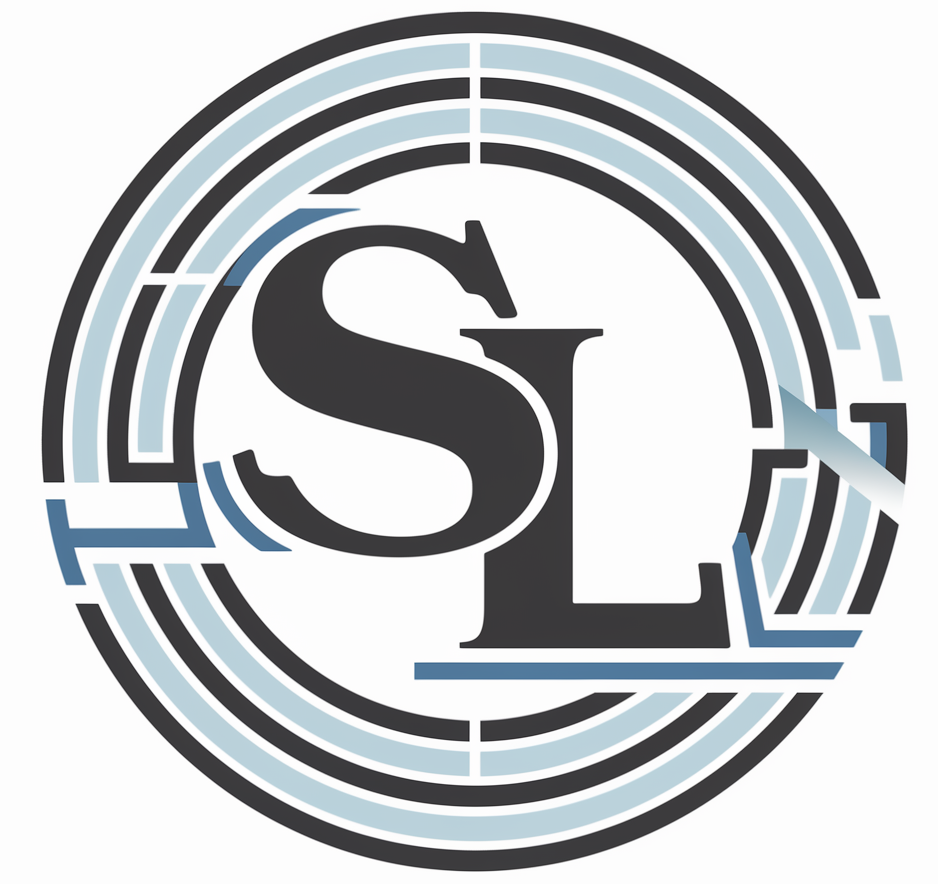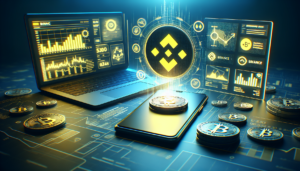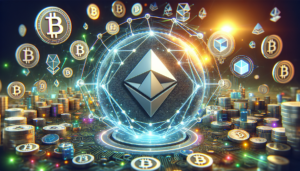Introduction to Polygon Crypto
Polygon, formerly known as Matic Network, is a rapidly growing blockchain platform that aims to solve some of the most pressing issues facing the Ethereum network. As a Layer 2 scaling solution, Polygon enhances Ethereum’s capabilities by improving transaction speeds, reducing fees, and providing a more user-friendly experience for developers and users alike.
What is Polygon?
At its core, Polygon is a Layer 2 blockchain that operates alongside the Ethereum network. It is designed to alleviate the congestion and high transaction fees that have plagued Ethereum as its popularity has grown. By offering a separate blockchain that is fully compatible with Ethereum, Polygon allows for faster and cheaper transactions while still benefiting from Ethereum’s security and decentralization.
Polygon achieves this scalability through the use of sidechains, which are separate blockchains that run parallel to the main Ethereum chain. These sidechains can process transactions independently, reducing the load on the main network. Polygon also employs advanced scaling technologies such as Plasma, Optimistic Rollups, and zkRollups to further enhance its performance.
The Role of MATIC Token
MATIC is the native cryptocurrency of the Polygon network. It serves several essential functions within the ecosystem:
- Transaction Fees: Users pay transaction fees in MATIC when interacting with dApps or transferring assets on the Polygon network. These fees are significantly lower compared to Ethereum gas fees.
- Staking: MATIC holders can stake their tokens to secure the network and earn rewards. Stakers help validate transactions and create new blocks, receiving a portion of the transaction fees as an incentive.
- Governance: MATIC token holders have a say in the development and direction of the Polygon network through governance proposals and voting.
How Polygon Enhances Ethereum
Layer 2 Scaling Solutions
Polygon offers a suite of Layer 2 scaling solutions that address Ethereum’s limitations:
- Polygon PoS: A Proof-of-Stake (PoS) sidechain that enables fast and secure transactions with finality.
- Polygon zkEVM: A zero-knowledge rollup solution that provides Ethereum Virtual Machine (EVM) compatibility, allowing developers to easily port their Ethereum smart contracts.
- Polygon Miden: A STARK-based rollup that offers privacy-preserving transactions and scalable computation.
- Polygon Hermez: An open-source zkRollup implementation that focuses on scalability and decentralization.
- Polygon Nightfall: A privacy-focused rollup built in collaboration with EY, utilizing optimistic rollups and zero-knowledge proofs.
These solutions work together to provide developers with a flexible and efficient framework for building and deploying decentralized applications (dApps).
Reducing Gas Fees
One of the major benefits of using Polygon is the significant reduction in gas fees. Gas fees are the transaction costs paid by users when interacting with the Ethereum network. Due to Ethereum’s popularity and limited throughput, these fees can often become prohibitively expensive during times of high network congestion.
By processing transactions on its own blockchain, Polygon drastically reduces the gas fees for users. This makes it more economical for individuals to interact with dApps, participate in decentralized finance (DeFi) protocols, and engage in other blockchain-based activities.
Improving Transaction Speeds
In addition to lowering costs, Polygon also greatly improves transaction speeds compared to the Ethereum mainnet. While Ethereum can handle around 15 transactions per second, Polygon’s sidechains can process thousands of transactions per second, providing a much smoother user experience.
This increased throughput is achieved through Polygon’s consensus mechanism and the use of sidechains. By distributing the transaction load across multiple chains, Polygon can parallelize transaction processing and avoid the bottlenecks that often occur on the Ethereum network.
Polygon’s Ecosystem and Applications
DeFi on Polygon
Decentralized finance (DeFi) has been one of the key drivers of Polygon’s growth. Many popular Ethereum-based DeFi protocols have expanded to Polygon, attracted by its faster transaction speeds and lower fees. Some notable examples include:
- Aave: A decentralized lending and borrowing platform that allows users to earn interest on their cryptocurrency holdings.
- SushiSwap: A decentralized exchange (DEX) that enables users to swap tokens and provide liquidity to earn rewards.
- Curve: An automated market maker (AMM) protocol focused on efficient stablecoin swaps.
- QuickSwap: A Polygon-native DEX that offers fast and cheap token swaps.
These DeFi applications have found a thriving ecosystem on Polygon, attracting a growing user base and significant trading volumes.
NFT Marketplaces
Non-fungible tokens (NFTs) have taken the crypto world by storm, and Polygon has emerged as a popular choice for NFT marketplaces. The lower transaction costs and faster speeds make it more accessible for artists and collectors to mint, buy, and sell NFTs. Some prominent NFT marketplaces on Polygon include:
- OpenSea: The largest NFT marketplace, which has integrated Polygon to offer gasless transactions and lower fees.
- Rarible: A community-owned NFT marketplace that supports multiple blockchains, including Polygon.
- NFTrade: A cross-chain NFT platform that allows users to trade NFTs across different blockchains seamlessly.
Polygon’s NFT ecosystem has seen rapid growth, with numerous high-profile projects and collaborations driving adoption.
Gaming and Payments
Polygon’s fast and cheap transactions make it well-suited for gaming applications and micropayments. Game developers can build decentralized games on Polygon, leveraging the power of blockchain technology to create immersive and rewarding gaming experiences.
In addition, Polygon’s low fees enable seamless and cost-effective payments, making it an attractive option for businesses looking to integrate blockchain-based payment solutions. The fast transaction confirmations and low costs make Polygon a viable alternative to traditional payment methods.
Staking and Governance on Polygon
Staking MATIC
Polygon uses a Proof-of-Stake (PoS) consensus mechanism, allowing MATIC token holders to stake their tokens and participate in securing the network. There are two main roles in the staking process:
- Validators: Validators are responsible for verifying transactions, creating new blocks, and maintaining the integrity of the network. They must stake a significant amount of MATIC and run a full node to participate.
- Delegators: Delegators are MATIC holders who delegate their tokens to validators, earning a portion of the rewards without the need to run a full node themselves.
By staking MATIC, users can earn attractive rewards while contributing to the security and decentralization of the Polygon network.
Governance Mechanisms
Polygon has a decentralized governance system that allows MATIC token holders to have a say in the development and direction of the network. Governance proposals can be submitted by the community, and MATIC holders can vote on these proposals to make decisions collectively.
Some examples of governance decisions include:
- Adjusting network parameters such as transaction fees or block rewards.
- Implementing protocol upgrades or new features.
- Allocating funds from the community treasury for development or ecosystem growth initiatives.
The governance mechanism ensures that the Polygon network remains community-driven and responsive to the needs of its users.
Getting Started with Polygon
Setting Up a Crypto Wallet
To start using Polygon, you’ll need a cryptocurrency wallet that supports the MATIC token and is compatible with the Polygon network. Some popular wallet options include:
- MetaMask: A browser extension and mobile app that allows you to interact with Ethereum and Polygon dApps.
- Trust Wallet: A mobile wallet that supports multiple cryptocurrencies, including MATIC.
- Coinbase Wallet: A user-friendly wallet offered by the popular cryptocurrency exchange Coinbase.
Once you have set up your wallet, you can connect it to Polygon-based dApps and start exploring the ecosystem.
Buying and Trading MATIC
To participate in the Polygon network, you’ll need to acquire MATIC tokens. You can buy MATIC on various cryptocurrency exchanges, such as:
- Coinbase
- Binance
- Kraken
- Huobi
Once you have purchased MATIC, you can withdraw it to your wallet address and start using it on the Polygon network.
You can also trade MATIC on decentralized exchanges (DEXs) within the Polygon ecosystem, such as QuickSwap or SushiSwap. These DEXs allow you to swap MATIC for other tokens and participate in liquidity pools to earn additional rewards.
Future Prospects of Polygon
Upcoming Developments
Polygon has an ambitious roadmap and is constantly working on new developments to enhance its ecosystem. Some notable upcoming developments include:
- Polygon Hermez 2.0: An upgrade to the Polygon Hermez solution, focusing on improving scalability, security, and decentralization.
- Polygon Avail: A standalone blockchain that will provide data availability services to other Polygon solutions and external projects.
- Polygon ID: A decentralized identity solution that will enable users to create and manage self-sovereign identities on the Polygon network.
- Polygon Nightfall v3: An update to the privacy-focused Nightfall rollup, enhancing its performance and expanding its use cases.
These developments demonstrate Polygon’s commitment to innovation and its drive to become a leader in the blockchain space.
Market Potential
Polygon has seen tremendous growth since its inception, with a rapidly expanding ecosystem and a strong community backing. The project has attracted significant investment from prominent venture capital firms and has formed partnerships with major companies such as Decentraland, Atari, and Dolce & Gabbana.
As the demand for scalable and efficient blockchain solutions continues to rise, Polygon is well-positioned to capture a significant share of the market. Its focus on developer experience, interoperability, and scalability sets it apart from other blockchain projects and makes it an attractive choice for builders and users alike.
With a strong foundation and a clear vision for the future, Polygon has the potential to become a leading platform for decentralized applications and to drive mainstream adoption of blockchain technology.
See also:






